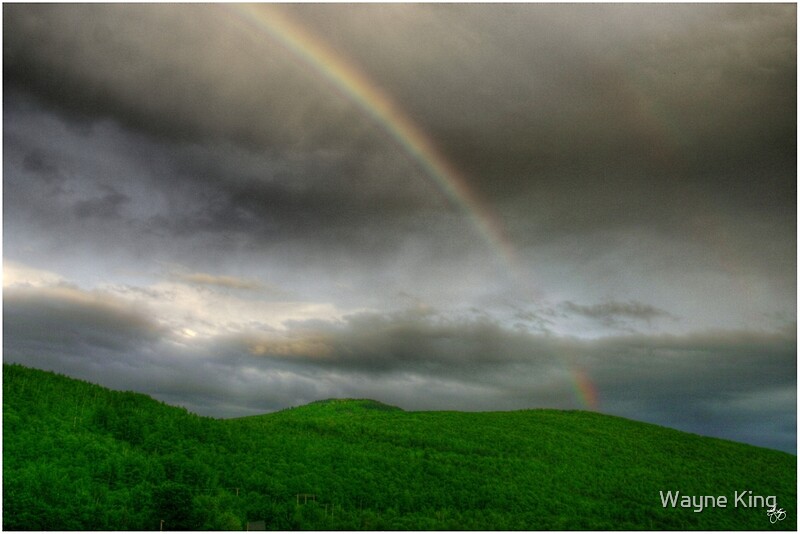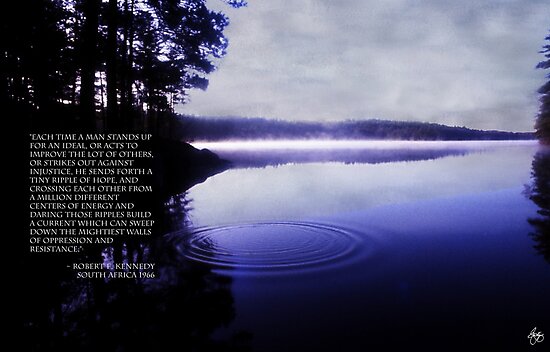Ep 07 NH's Outsized
Role in The Renewable Energy Revolution
With an Amendment
inserted in the 1974 PURPA act, one short paragraph, authored by John Durkin
and his team, successfully wrested monopoly control over the electric grid from
the utility companies and opened the gates for a flood of small alternative power
producers and eventually individual homeowners and businesses.
Listen here:
Originally
printed in The View From Rattlesnake Ridge column
Ruminations
from an Unabashed Optimist, an Environmental Patriot and a Radical Centrist
Want to Know
who to thank for The Renewable Energy Revolution? Start with NH Senator John Durkin. . .
and President Jimmy Carter
By Wayne D. King
Last year as the fleeting pleasures of a North Country summer were quickly yielding to the bittersweet days of autumn along Rattlesnake Ridge where I live. I was ruminating on the book I had just finished "Sacred Trust" and thinking of how Autumn always seems to summon forth the highs and lows of our inner spirits; one moment we want to run and jump and throw our hands in the air, rejoicing at the beauty of the world around us and the next we are close to tears, often for reasons that seem completely unfathomable . . . careening between joy and sadness, though I suspect that the passage of time, more acutely felt, is the primary motivating force.
In a week or two the hills would be ablaze with color. At least so we all hoped. The effects of climate change seem to be having an effect on autumn foliage, but we really don’t know what the effect is. Some climate scientists say it will enhance colors, at least in the short term.
Others insist the leaves will turn from green to brown and simply fall off the tree, but we don’t know how much of that is because of climate change and how much is because of an extremely dry summer and fall. Scientists differ wildly in their predictions of the effect but there is not the slightest difference on the causality side of the equation . . . the changing climate of our earth mother.
In Sacred Trust, an existential environmental time bomb, in the form of a massive powerline, is about to explode an entire way of life for the people of the North Country. Nine unlikely oddballs: rock climbers, paddlers, a deer farmer and a former spook, are all that stands between the people and the powerline.
Most readers find themselves praying for the Oddballs. . . If the storyline sounds familiar it is at least in part because I was seeking a vicarious way to express my own frustration with the current situation here in New Hampshire, but also in states across the nation where the same scenario is taking shape.
The novel is somewhat unique, I think, in that the story divides itself between the heroes – citizens engaged in creative civil disobedience as the last defense against the powerline; a group of writers, calling themselves the Gazetteers, writing against the powerline project in the style of the authors of the Federalist Papers; and, finally, a serious-minded journalist who is writing a well researched analysis about both the project and the national and international challenges of the advancing “Age of Electricity.”
It was, and is, my hope to create a work of fiction that was enjoyable to read but that also helped readers to understand some of the challenges and nuance of the world in which we are all living and the world we are beginning to see emerge . . . the post-carbon world. Whether this education occurs on an individual basis or as a creative tool for the classroom, or both, it was my hope that art could be harnessed to facilitate change and dialog.
In doing research for Sacred Trust I learned a great deal and found to my delight and surprise that New Hampshire played an outsized role in today’s Renewable Energy Revolution. Furthermore, there were some civics lessons that also could be gleaned from the process that has brought us to this place.
Most of the remainder of this column is taken, almost verbatim, from Chapter 57 of Sacred Trust, in which journalist James Kitchen discusses the renewable energy revolution and New Hampshire’s role in its genesis.
Kitchen begins by describing a shifting paradigm that replaces carbon-based energy sources with sustainable green energy and some of the choices, challenges and dilemmas associated with the changeover.
Understanding the choices that our nation faces as we struggle to build a new energy paradigm requires that we have at least a basic understanding about how we got to where we are today and that journey – strangely enough – winds right through New Hampshire. In more ways than one . . .
Most politicians and even most citizens in New Hampshire consider the place of our state in the national election process as sacrosanct. The First-in-the-Nation presidential primary provides a jolt of cash to the state’s economy every four years but most people, particularly the staunchest defenders of the Primary, will tell you that there are more important reasons for protecting our place as first in the nation.
They will explain that only in a small state like New Hampshire does a candidate with limited money – but a great message – have a chance. In larger states, where the election is dominated by big business, big labor, and exorbitant media costs a great candidate without deep pockets will never have such a chance.
New Hampshire folks take their role in the process of winnowing down the field of candidates in their primary very seriously. They study the issues, they vigorously question the candidates, and then, once they have made up their minds, they roll up their sleeves and get involved in one campaign or another.
To understand where we are today we need to go back to the mid 1970s. Richard Nixon had resigned, to avoid being impeached, and Gerald Ford, appointed by Nixon after the untimely (and from many accounts unseemly) death of Nelson Rockefeller, was our first unelected President.
The Presidential primary of 1976 saw a very crowded contest among Democrats. Depending on who you count there were almost twenty people testing the waters or outright campaigning for the nomination. From that process, an unknown Governor named Jimmy Carter emerged and swept to the nomination as the “un-politician.”
Carter won in Iowa and during the last three weeks of the New Hampshire Primary, capitalized on his Iowa win and zoomed from a 2% standing to over 30%, capturing New Hampshire. These two wins would serve to create a groundswell and Carter would go on to win the Democratic nomination. By the time the General Election rolled around James Earl Carter had sold himself as the first “outsider” candidate of the modern era and he won handily over Gerald Ford.
Carter’s one-term presidency was roiled by controversy and crisis, from an Arab Oil Embargo to the taking of American hostages at the American Embassy in Iran and a disastrous attempt to rescue those hostages.
Hidden in the layers of these controversies and crises is a legislative record that created the framework for a renewable energy revolution that has, of late, taken the country by storm. Carter’s team shepherded through Congress the landmark Nation Energy Policy Act, including a section called PURPA – the Public Utility Regulatory Policies Act. These massive pieces of Federal legislation included the first national policies on renewable energy and energy conservation, among other things.
Two years before Carter ascended to the Presidency, New Hampshire held an election for a United States Senator to replace the retiring Norris Cotton. A close contest between the Democrat John Durkin and the Republican Louis Wyman led to two recounts; the first won by Durkin, by ten votes; and, the second, won by Wyman, by 2 votes. Any citizen who wonders if their vote counts, need only look at the outcome of this election. Finally, at an impasse, a new election was declared by the US Senate an election that Durkin won handily. Two years later, as the Carter Energy policy was moving through the Congress, John Durkin quietly and without fanfare, added an amendment into the PURPA act. The amendment required that utility companies purchase power – at market rates – from any producer of electricity generating fewer than 80 megawatts from a renewable energy source.
Durkin originally believed that he was helping to establish a foothold for wood to energy biomass and trash to energy co-generation, and he was; but the door that he opened with his amendment turned out to be big enough for every dreamer and entrepreneur, with a viable idea for generating electricity renewably, to walk through. Thus began the renewable energy revolution.
Soon proposals for small hydro (also called low head hydro), solar power, wind power and other renewable resources were on the drawing board and underway.
The Energy Policy Act passed the Senate by 1 vote. Again, a civics lesson in the importance of every vote in a democracy.
Over the years since then a few changes have been made to the Energy Act, but all continuing to move the country toward the day when renewable energy would account for a larger and larger portion of the power produced.
The changes of the 70s represented the first step in a changing relationship between America’s public utilities and the people and businesses who consumed the energy. Utilities no longer held complete monopoly power over both the sale and the purchase of electricity as well as its transmission.
To be fair to utility companies, it is important to note that these changes have created serious disruption in the model that they had been employing to govern their business plans and for many would come to represent an existential threat to their economic viability.
Different utility companies have approached the challenges posed by this deregulation in different ways. Almost immediately Vermont utilities formed a working group among utilities to come up with approaches that would allow them to create sustainable business models and one of the first things they did was to add ratepayers and citizens to the process to create forward momentum and a consensus building approach that made everyone a participant in a process that strengthened utility companies and encouraged the development of renewable energy.
Those who simply tried to squeeze more from a diminishing set of profit centers hastened toward crisis. The changes that have taken place over the past twenty years represent an existential challenge to many utility companies. They are casting around for ways to generate more profits in an era of shrinking opportunities.
The more progressive utilities are doing this by working to build an infrastructure that enhances the opportunities for renewable energy and the organic job growth that comes with it. Others are simply clinging to the past and trying to enhance their bottom line through transmission proposals that link together large generators of power with lucrative markets.
There are many lessons to be learned from the approaches employed to enhance their sustainability by utility companies all across America. But there is no doubt about one thing.
One short paragraph, authored by John Durkin and his team, had successfully wrested monopoly control over the electric grid from the utility companies and opened the gates for a flood of small alternative power producers and eventually individual homeowners and businesses.
For the first time the American people, just beginning to experience a growing environmental consciousness back in the 70s, had a say in the kinds of energy that we were using and could participate in the creation of that energy. For that we can thank Jimmy Carter, John Durkin and the 95th Congress of the United States.








